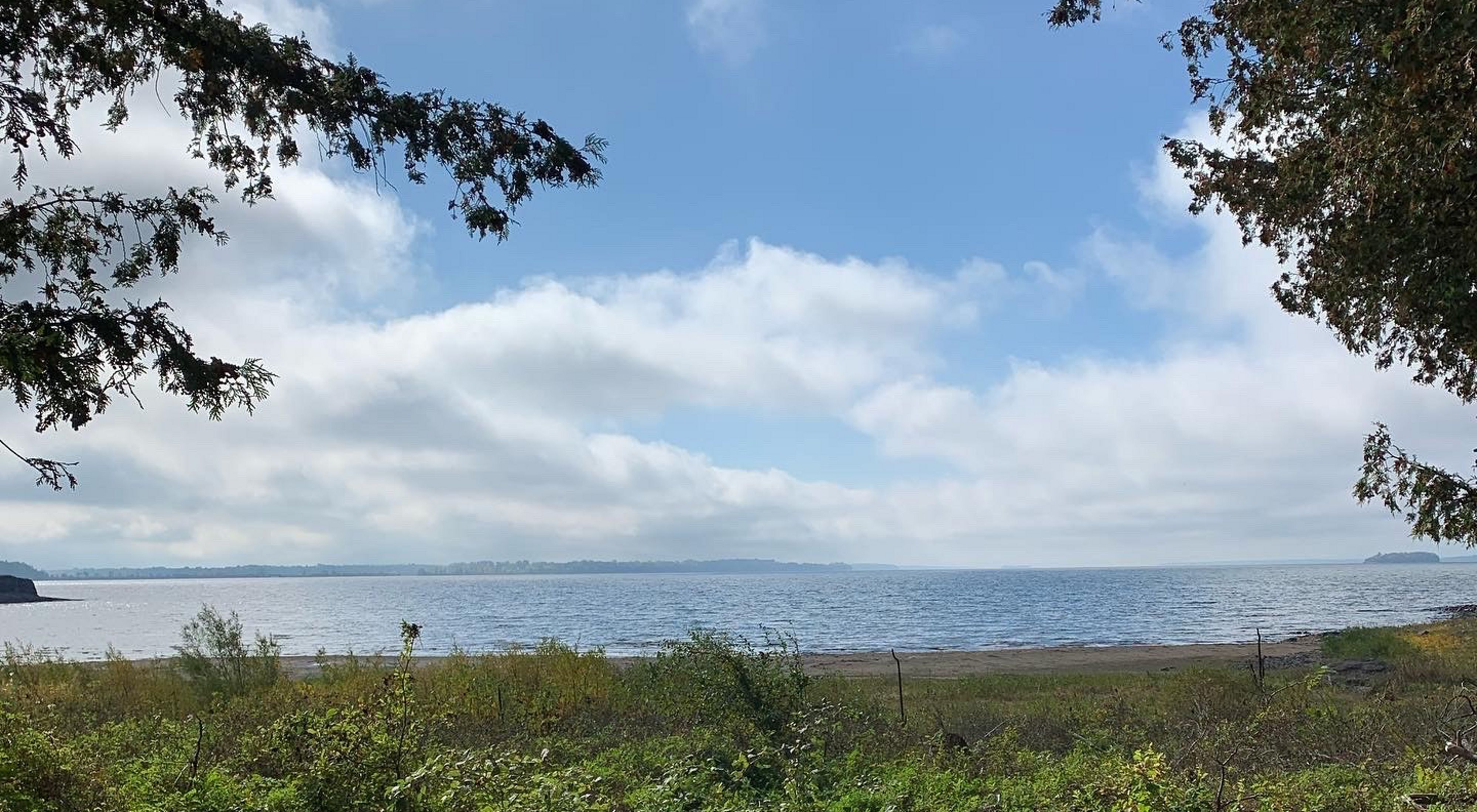MONTPELIER, Vermont
,
September 27, 2022
(press release)
–
The Nature Conservancy in Vermont and the Vermont Department of Forests, Parks, and Recreation are pleased to announce the addition of the 164-acre Alburgh Bluffs parcel to Alburgh Dunes State Park, expanding the park to 789-acres. The Nature Conservancy acquired the Alburgh Bluffs property in January 2021 and has been working with the Department of Forests, Parks and Recreation to add the parcel to the State Park in the time since. The waterfront property is significant for both people and nature. It is a biodiversity gem with sixteen natural communities and twenty-five rare or endangered species. As part of Alburgh Dunes State Park, the parcel expands public access to Lake Champlain, while also protecting the lake’s water quality. The Nature Conservancy and the Vermont Department of Forests, Parks, and Recreation initially conserved and created the State Park in 1996, which now boasts a 1.5-mile walking loop, a bicycle and pedestrian path, and public access to a natural sand beach and Lake Champlain. More than 20,000 visitors enjoy Alburgh Dunes State Park each year. Over its sixty-year history, The Nature Conservancy has helped protect nearly a quarter of all state lands managed by the Agency of Natural Resources in Vermont, including Wildlife Management Areas, State Parks and State Forests. Why Alburgh Bluffs is Special “The conservation of Alburgh Bluffs is an important success story. In one project we are increasing public access, safeguarding critical plant and wildlife habitat, and improving water quality through the protection of wetlands and forests. This project is a testament to the power of partnerships. We hope more people from around the state will come and visit this beautiful Vermont treasure,” said Heather Furman, Vermont State Director for The Nature Conservancy. The newly conserved property includes approximately 4,800-feet of Lake Champlain waterfront, 20-foot cliffs of exposed shale bluffs, cedar-pine forests, and sweeping views of both the Green Mountains and the Adirondacks. Nearly half the property is wetland, favored by ducks and shorebirds on their migration through the Champlain Valley, while the other half contains upland forests and fields suitable for hiking, wildlife viewing, and enjoying the surrounding vistas. “This is such exciting news for the Town of Alburgh! The expansion brings increased recreational opportunities for our local residents, will attract additional tourists to the area, and will help ensure this treasured asset thrives for generations to come,” said Josie Henry, Alburgh Selectboard Chair. Sand dunes are an extremely rare feature on Lake Champlain, and harbor some globally rare and regionally rare plant species. At one time, the namesake dunes of Alburgh Dunes State Park were mined for beach sands. Since their protection in the 1990s by The Nature Conservancy and the Vermont Department of Forests, Parks, and Recreation, the once degraded dunes are now teeming with life. Rare dune plants such as beach pea and Champlain beach grass have rebounded, helping to protect the dunes and increase local biodiversity. “Alburgh Dunes State Park is a special place and the Vermont Department of Forests, Parks and Recreation is proud and excited to expand the park and its offerings,” said FPR Commissioner Michael Snyder. “The Alburgh Bluffs property adds opportunities for the public to experience the splendor of Lake Champlain, while also protecting critical habitats and water quality. We look forward to managing these values for nature and for people, in partnership with The Nature Conservancy, into the future.” The $1.1 million dollar purchase was made possible with funding support from the Vermont Housing and Conservation Board, the federal Land and Water Conservation Fund, the Vermont Department of Fish and Wildlife’s Migratory Waterfowl Fund, the Lintilhac Foundation, Ducks Unlimited, and private donors. To learn more about Alburgh Dunes State Park, visit https://vtstateparks.com/alburgh.html. The Nature Conservancy is a global conservation organization dedicated to conserving the lands and waters on which all life depends. Guided by science, we create innovative, on-the-ground solutions to our world’s toughest challenges so that nature and people can thrive together. We are tackling climate change, conserving lands, waters and oceans at an unprecedented scale, providing food and water sustainably and helping make cities more sustainable. Working in 76 countries and territories—37 by direct conservation impact and 39 through partners—we use a collaborative approach that engages local communities, governments, the private sector, and other partners. To learn more, visit www.nature.org or follow @nature_press on Twitter.
* All content is copyrighted by Industry Intelligence, or the original respective author or source. You may not recirculate, redistrubte or publish the analysis and presentation included in the service without Industry Intelligence's prior written consent. Please review our terms of use.




